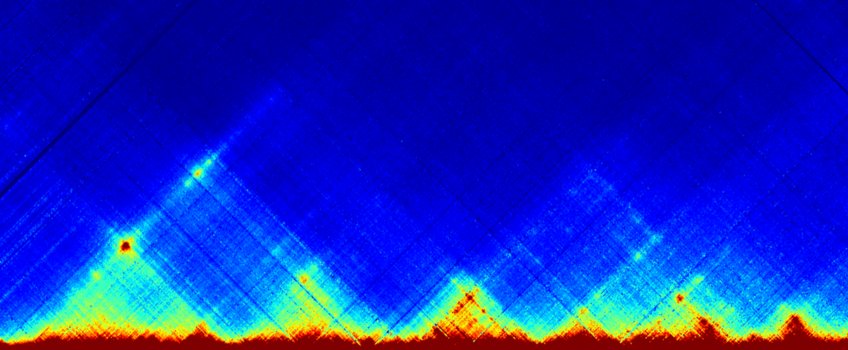
Lise Meitner Group Genome Organization and Regulation
One of the biggest mysteries of life is the process by which a single fertilised egg develops into a complex multicellular organism, comprising hundreds of different cell types with distinct phenotypical and functional characteristics. Such distinct cellular states ultimately represent the readout of specific gene expression programmes. These programmes depend on the regulatory elements of the genome, which control the levels of activity of the genes they regulate. Cell-type specific enhancer elements activate gene promoters, resulting in assembly of the transcription machinery and up-regulation of gene expression. Although promoters usually lie directly upstream of their target genes, enhancers can be located hundreds of kilo-bases away and do not necessarily regulate the nearest gene.
The spatial organisation of the genome in the nucleus is important for accurate communication between enhancers and promoters. These regulatory elements interact in three-dimensional chromatin structures, which allow for communication between elements that are separated by large genomic distances. The specific interactions between enhancers and promoters are critical to establish accurate gene expression programmes during differentiation and development. Moreover, perturbations of such interactions underly several congenital disorders and human cancers. However, many fundamental principles regarding their formation and function in the transcription cycle are still unknown.
The aim of our research is to understand how three-dimensional chromatin structures are formed and how regulatory elements function within this context to control gene expression. To this end, we develop high-resolution Chromosome Conformation Capture (3C) techniques, which we use in combination with other genomic techniques, genetic perturbations, and computational approaches. We focus on the interplay between genome organisation and regulation during mammalian differentiation, and how perturbations in these processes contribute to human disease, including cancer.



